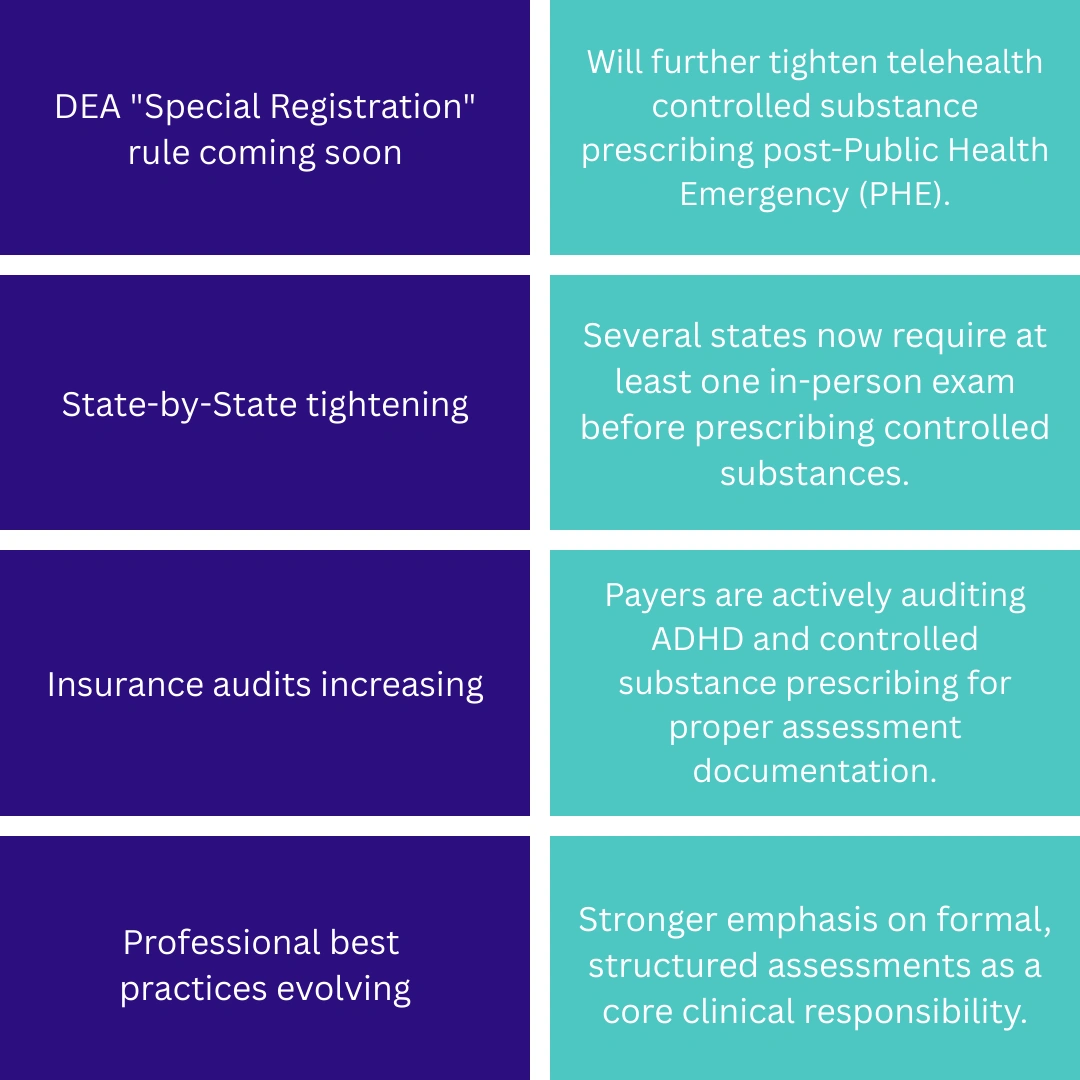Best Practices Have Shifted: Don’t wait for formal regulations to adopt a data-driven diagnostic process

May 5, 2025
In the wake of the Cerebral and Done controversies, a crucial shift is underway in psychiatric practice: Conducting a formal, well-documented diagnostic evaluation before prescribing a controlled substance is rapidly becoming the new standard of care — especially when it comes to prescribing stimulants for ADHD.
The backstory: What sparked this change?
Federal investigations into Cerebral and Done revealed serious issues: inadequate diagnostic assessments, rushed evaluations, overprescribing of stimulants like Adderall, and poor or missing documentation.
As a result, scrutiny around controlled substance prescribing has dramatically increased, with heightened oversight from:
- The DEA
- State medical boards
- Insurance companies
- Pharmacy chains
Several states are tightening their regulations, and major professional organizations like the APA (American Psychiatric Association) and ANA (American Nurses Association) are advocating for best practices that prioritize thorough diagnostic assessments and proper documentation.
What's now expected (Even if not always explicitly "required" by law yet)
Today, before prescribing a controlled substance — particularly ADHD medications — clinicians are expected to:
Conduct a comprehensive psychiatric evaluation, including:
- Symptom inventory
- Functional impairment assessment
- Full medical and psychiatric history
- Differential diagnosis consideration
- Review of alternative explanations
Use validated assessment tools to support clinical decision-making (e.g., ASRS, ADHD-RS, Conners, MindMetrix).
Document clearly and thoroughly, including:
- DSM-5 diagnostic criteria met
- Conditions ruled out
- Rationale for medication selection
- Plans for ongoing risk monitoring and follow-up
While these steps might not yet be codified in federal law across the board, they are increasingly seen as the defensible, standard-of-care approach.
Key forces driving this shift
Bottom line for providers
- Conduct and document a formal diagnostic assessment before prescribing a controlled substance, especially ADHD medications.
- Use validated tools like MindMetrix to strengthen your clinical decision-making and safeguard your practice.
- Stay ahead of regulations by aligning with the emerging standard of care, even if laws vary by state.
Ready to boost your practice?
Try 3 complimentary assessments on us.
